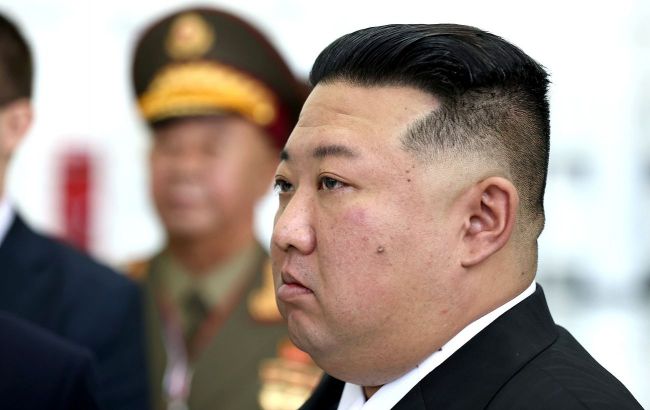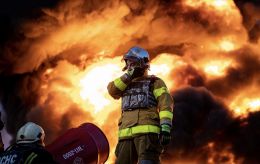North Korea tests new intercontinental ballistic missile: What to know
 Photo: Kim Jong Un, leader of the DPRK (kremlin.ru)
Photo: Kim Jong Un, leader of the DPRK (kremlin.ru)
Around 12:10 a.m. Kyiv time today, Oct. 31, the Democratic People's Republic of Korea (DPRK) conducted a test of a new intercontinental ballistic missile. The flight lasted 86 minutes, reports Defense Express.
According to data from Seoul and Tokyo, the missile reached a record altitude of 7,000 km and fell to the west of the island of Okushiri.
Although the training warhead landed a thousand kilometers from the launch site, the high altitude of the trajectory chosen for the test indicates that if launched along a standard route, the missile could cover a distance of over 17,000 kilometers. This opens up the possibility of reaching any point on the territory of the United States and Europe. Essentially, at such a range, Pyongyang can only miss some regions of South America.
It is likely a new model of a solid-fuel missile or an upgraded version of the Hwasong-18. The DPRK did not provide specific details about the type of missile, stating only that the launch was record-breaking in terms of performance.
To date, the only solid-fuel intercontinental ballistic missile known in the DPRK is the Hwasong-18.
Analysis of photographs and technical characteristics of the Hwasong-18 missile suggests the possible use of Russian technologies and components. This is indicated by its similarity to Russian missiles Topol-M and its upgraded version Yars, suggesting a source for the technologies used in its development.
It is currently unknown whether the intercontinental ballistic missile launched today is an upgraded version of the Hwasong-18.
Nuclear Threats from the DPRK and Russia
Russian president Vladimir Putin proposed recently expanding the list of circumstances under which nuclear weapons may be used. He is attempting to increase pressure on Western nations and Ukraine's allies.
However, as Time reports, Western leaders are no longer as fearful of nuclear threats from Russia and are increasingly vocal in their support for Ukraine.
At the end of September, North Korea also joined the nuclear rhetoric, playing along with the Russian leader in his attempts to intimidate the world.
Russia began nuclear exercises recently, likely aimed at pressuring the US and countries supporting Ukraine. Read more details in the RBC-Ukraine report "Putin's nuclear exercises: What it means and whether it's related to US election."

